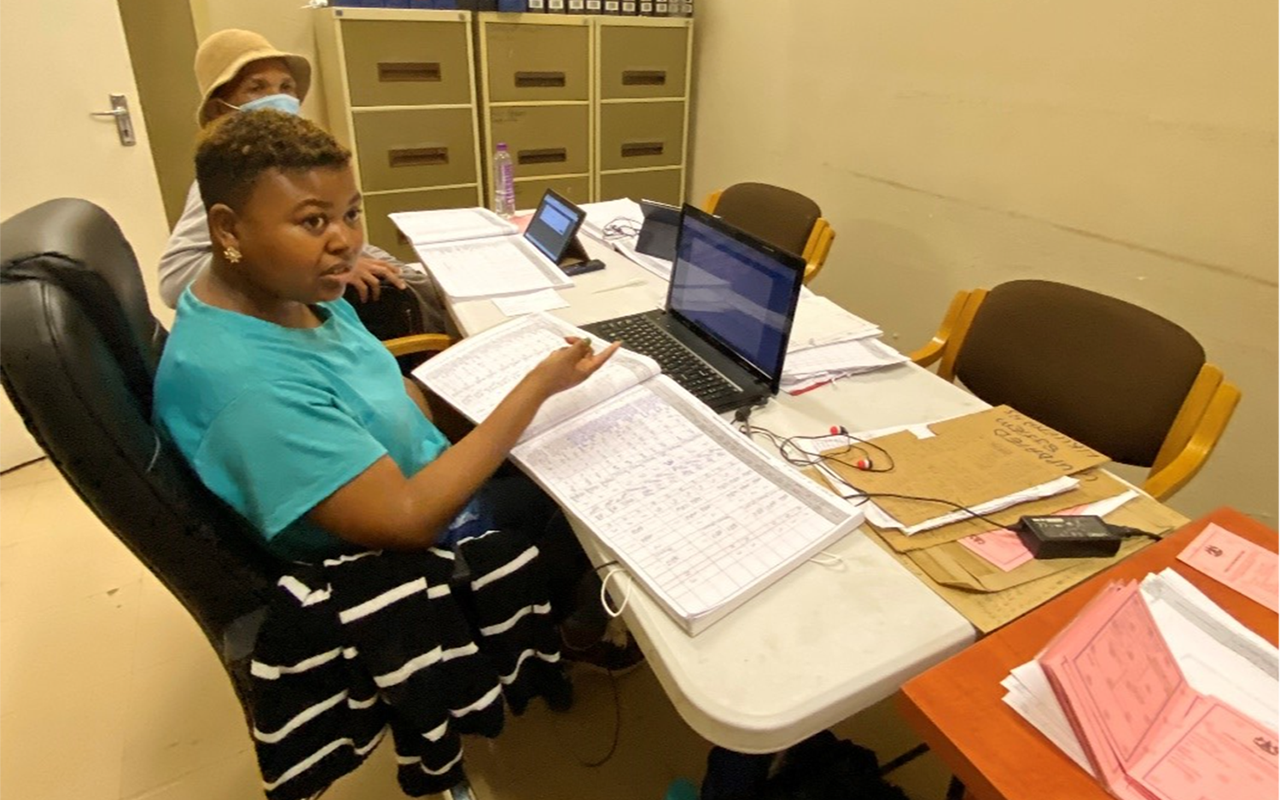
Mohapi Khunyane, Nurse-in-Charge at Phamong Health Clinic – one of several clinics MCC upgraded through the previous Lesotho compact – discusses the challenges with hard-copy records systems.
The compact’s Health Systems Strengthening (HSS) project will aim to improve primary healthcare services and standards of care, improve healthcare, and work with the Ministry of Health to modernize health data systems. The project is expected to improve health outcomes, especially maternal and child health.
As a data-driven agency, MCC and partner governments conduct an analysis to determine what constraints are preventing a country from achieving more robust economic growth. Those constraints run the gamut from lack of reliable power to poor road networks or inadequate access to clean water. Addressing those constraints often indirectly impacts public health, too. For example, compacts that upgrade a country’s power sector may also help provide hospitals and clinics with more reliable power sources—as MCC’s Ghana Power Compact did—a critical factor in improving health systems. Compacts centered on improving transport may also give vulnerable households easier access to health facilities, which can improve health outcomes and saves lives.
Health care generally only becomes a binding constraint to economic growth in countries with severe health problems like high HIV prevalence rates, severe problems with nutrition, or for countries experiencing an epidemiological transition—such as increasing rates of non-communicable disease.
In Lesotho, a small landlocked kingdom in Southern Africa, many factors constrain economic growth, but primary among them is HIV. The U.S. Government, through the President’s Emergency Fund for AIDs Relief (PEPFAR) and the Global Fund to end AIDS, TB, and Malaria, has invested hundreds of millions of dollars in in HIV programming support. MCC’s investment through the Lesotho Health and Horticulture Compact is expected to support the sustainability of PEPFAR’s hard-fought achievement in reaching HIV/AIDS epidemic control.
The investments in HIV created a well-resourced, updated, and digital health experience for those who are HIV positive in the country. If a pregnant woman is HIV+ and walks into a rural health center in Lesotho, her care is delivered and recorded in an electronic medical record that links to the national health information system, pharmacy, and laboratory systems. However, a pregnant woman who tests negative for HIV or TB would merely have her care recorded using a paper system. Records of the care she received will live in a small, health booklet she carries, and her information will be manually tabulated and entered into the national health information system.

Data managers and senior accountants at Mohale’s Hoek District Health Monitoring Team discuss the challenges with hard copy registers. “We are losing some numbers,” they said. “Our statistics are not good. We are not getting actual numbers.”
There will be challenges ahead in architecting a national digital health system that is interoperable, sustainable and can function in low connectivity and low electricity settings. MCC is planning to work with the Ministry of Health to design and implement a fully operational digital health system, across all disease areas, building from the foundation established by PEPFAR. MCC will be making major investments in primary health care equipment and digital health infrastructure, beginning in early 2024. We are also planning for a health data and innovation incubator to create public demand for quality health data.
MCC’s Health and Horticulture Compact builds upon MCC’s previous compact with Lesotho, which provided an estimated 752,000 people with access to basic healthcare through the construction and rehabilitation of 138 health facilities and 14 outpatient departments— representing 90% of the health facilities throughout the country.
With these new investments in digital health, Lesotho could serve as an example for other African nations that have HIV and TB specific digital health systems and are looking to leverage an initial investment to create national systems.

